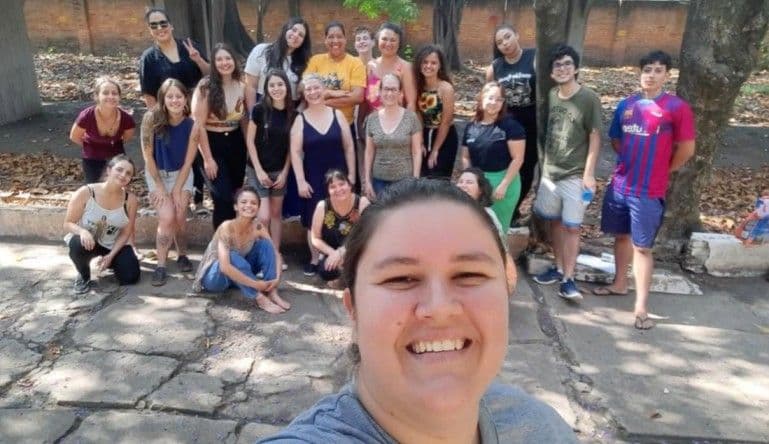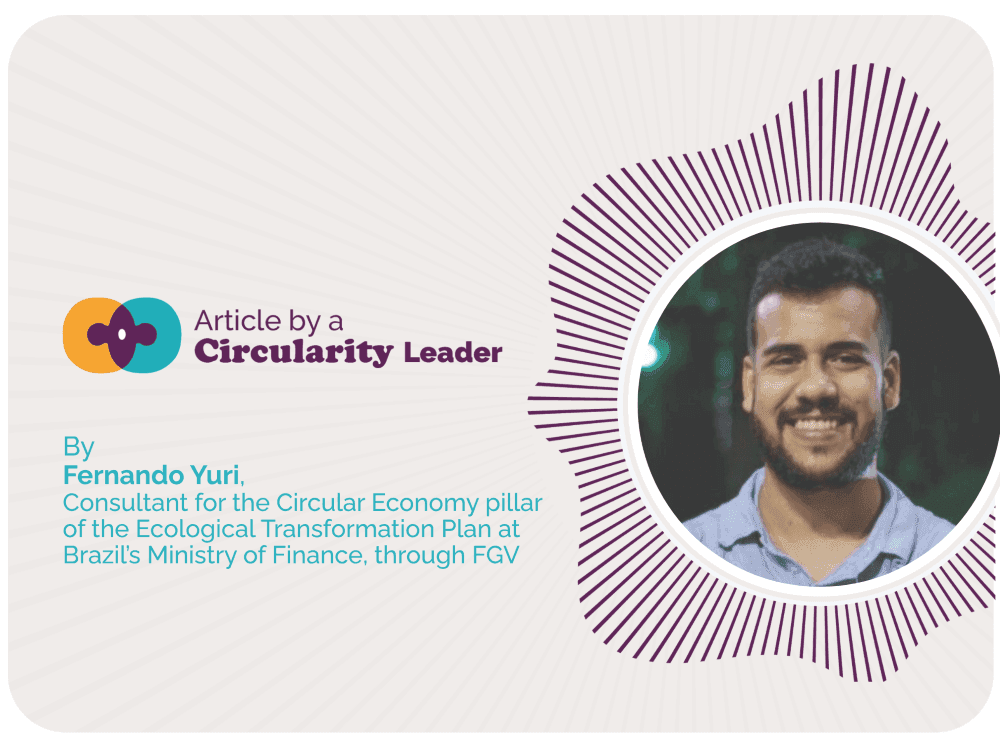
21/10/2023
Circular Movement announces the winners of the 2023 Circular Challenge
It's time to meet the winners of the Brazilian edition of the 2023 Circular Challenge! The Circular Movement initiative promotes ideas and education for the Circular Economy. This year, projects from 13 states, spread across all regions of Brazil, were received. In total, nearly 90 teachers registered with innovative ideas, making it a challenge for the evaluators to choose the idea most aligned with promoting circularity and the conservation of natural resources.
For Alinye Amorim, coordinator of the Circular Challenge, the initiative allows the Circular Movement to enter schools and promote circularity principles through education. "This year, we noticed that the ideas presented were not just projects of small groups; they involved the entire school and were transforming the reality of the communities where they were located. It's truly inspiring," explains Amorim.
The winning projects were announced this Friday in a live stream on the Brazilian profile of the Circular Movement on Instagram. But what were the awarded projects?
 The winners announcement live featured Alinye Amorim, coordinator of the Circular Challenge 2023; Vinícius Saraceni, CEO of Circular Movement, and Magdalena Flores, communication leader of Dow's packaging business, our pioneering partner. Image: Circular Movement.
The winners announcement live featured Alinye Amorim, coordinator of the Circular Challenge 2023; Vinícius Saraceni, CEO of Circular Movement, and Magdalena Flores, communication leader of Dow's packaging business, our pioneering partner. Image: Circular Movement.
Colorful Circularity
The "Banco de Tintas" (Paint Bank) project, based in Jundiaí, São Paulo, aims to color cities in a sustainable way, contributing to income generation and waste reduction. It's an idea that seeks to transform waste into resources, aligning with the vision of a more circular and sustainable future - and it was awarded first place in the 2023 Circular Challenge.
Conceived by students from the Environmental Management course at the Deputado Ary Fossen College of Technology (Fatec) in Jundiaí, the idea is recognized as an example of innovation, sustainability, and Circular Economy.
According to the coordinator of the Circular Challenge, the project's major differentiator is its potential for scalability in any location. "This project is amazing. They started from a simple solution that can be applied in any city, anywhere. Moreover, this solution addresses the issue of paint waste in a circular way, meaning it can benefit many more people as well. It's truly a fantastic project, and we're excited to help promote it nationwide," comments Alinye Amorim.
In addition to winning the competition, the Paint Bank also secured a spot as a finalist in the 1st international edition of the Prize for a World Without Waste, scheduled for December 2, where projects from all of Latin America will participate.
The creators of the project will also receive mentoring from Circular Movement experts, contributing to the continuous development of this remarkable idea. Furthermore, the project's supervising teacher will also participate in the 1st Northeast Circular Economy Forum (FNEC) in November in Bahia, with all expenses covered. It's another opportunity to present the project to various industry professionals at an event focused on promoting Circular Economy, free and open to the public.
 The Paint Bank stood out significantly for its ability to be applied anywhere. Image: Reproduction/Paint Bank.
The Paint Bank stood out significantly for its ability to be applied anywhere. Image: Reproduction/Paint Bank.
According to Edson Grandisoli, the pedagogical coordinator of the Circular Movement, all the projects are of high quality. "We received incredible projects that highlighted the principles of the Circular Economy. These initiatives addressed local issues, involving the school community and other external partners, promoting dialogue and collaboration. The main goal was to raise awareness about the Circular Economy and promote shared responsibility. The three winning projects exemplify these characteristics, and we hope that future editions will be equally successful," he says.
Get to know more participating projects
The second and third places in the 2023 Circular Challenge went to "Sustainable Straws" and "Thinking About It..."
Conducted by students from the Cosme Rodrigues de Souza Full-Time State School in Carnaubal, Ceará, "Sustainable Straws" proposes replacing regular plastic straws with straws made from grass. In this case, students use colonial grass, abundant in the region and previously without a purpose. Grass straws take between six and twelve months to decompose and do not harm the local flora and fauna.
On the other hand, "Thinking About It...", conceived by students and a teacher from the Talentos International School in Sorocaba, São Paulo, offers an extremely broad concept of circularity. The project involves photo-organic recycling, treating waste such as electronic waste and used oil.
Those who deliver used oil and electronic waste receive an electronic exchange coin that can be used later on. At school, the students will promote the cultivation of a garden, as well as the creation of a soil composter.
Moreover, a rainwater collection system and an innovative irrigation system were devised - using banana peel straws from the school's cafeteria, which will also serve as fertilizer for the garden. The straws will eventually turn into fertilizer, but the students themselves should continue producing more.
The new straws and coins can be exchanged for homemade soap or garden products. The idea encompasses the beginning, middle, and end of the sustainability process, making it comprehensive, effective, and circular.
In 4th and 5th place, respectively, were the projects "Smart Trash Can for Plastic Waste" from the Jorge Street State Technical School (ETEC) in São Caetano do Sul, São Paulo; and the "Eco Looks Project" from the Professor Vania Do Amaral Matias Edde State School in Santa Cruz, Rio de Janeiro. In addition, schools in the Baixada Santista, São Paulo, received an honorable mention from the initiative.
All the finalists will also receive support from the "Adopt a School Program" from Link Technology. With this, they will receive mentoring from this partner, and their promotion will be boosted on Google.
"The Circular Challenge, in its third edition, reflects the growing commitment to the Circular Economy. The projects presented demonstrate higher quality and a more comprehensive and structured approach to the principles of circularity. This year's winner exemplifies these principles with a solid and practical project. We also want to highlight the increasing engagement of the community, such as the Baixada Santista, in the South Coast of São Paulo, which deserves an honorable mention for its ongoing dedication to the initiative," says Vinicius Saraceni, CEO of the Circular Movement.
What is the Circular Economy?
The Circular Economy proposes a new perspective on how we produce, consume, and dispose of resources to optimize the planet's resources and generate less waste. In other words, it offers an alternative to the Linear Economy model - extract, produce, use, and discard - which has proven increasingly unsustainable throughout history.
In the Circular Economy, the goal is to keep materials in circulation for as long as possible through reuse until nothing becomes waste! To make this model a reality, we all have a role to play. It's a true collaborative circle that feeds itself and helps regenerate the planet and our relationships.
Learn about the Circular Economy
If you're interested in learning more about this topic, visit the Circular Academy, the first Latin American free course on the Circular Economy aimed at the general public. Together, in partnership and collaboration, we can make a difference in building a more circular planet.

